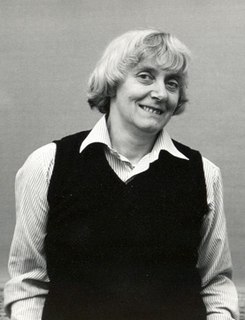Цитата Джейн Портер
Передача знаний — это только зажигание чужих свечей у нашего светильника, не лишая себя никакого пламени.
Связанные цитаты
Посмотрим, чтобы наше знание о Христе не было бессильным, бесплодным, непрактичным знанием: о, если бы оно, переходя от нашего разумения к нашим устам, могло сильно растопить, усластить и увлечь наши сердца! Помните, братья, святое призвание никогда не спасало человека без святого сердца; если только наши языки будут освящены, весь наш человек должен быть проклят. Мы должны быть судимы одним и тем же евангелием, предстать перед одним и тем же судом, приговорены к одним и тем же срокам и наказаны так же сурово, как и любые другие люди.
Учитель никогда не сможет по-настоящему учить, если он все еще не учится сам. Лампа никогда не сможет зажечь другую лампу, если она не продолжит гореть своим собственным пламенем. Учитель, который дошел до конца своего предмета, который не имеет живого обращения со своими знаниями, а просто повторяет свой урок своим ученикам, может только нагрузить их ум, он не может их оживить.
Преувеличение! приписывали ли когда-нибудь добродетели человеку без преувеличения? Был ли когда-нибудь порок, без бесконечного преувеличения? Не преувеличиваем ли мы сами перед собой или признаем себя такими, какие мы есть на самом деле? Разве мы не все великие люди? Но что мы на самом деле, чтобы говорить о? Мы живем преувеличением.
Я зажгу свечи в это Рождество, Свечи радости, несмотря на всю печаль, Свечи надежды, где отчаяние наблюдает. Свечи мужества там, где всегда присутствует страх, Свечи мира для бурных дней, Свечи благодати, чтобы облегчить тяжелое бремя. Свечи любви, чтобы вдохновлять всю мою жизнь, Свечи, которые будут гореть круглый год.
Чтобы успокоиться в тишине собственного бытия, мы должны научиться быть непривязанными к результатам нашей собственной деятельности. Мы должны довольствоваться тем, что живем, не наблюдая себя вживую, работаем, ожидая немедленного вознаграждения, любим, не получая немедленного удовлетворения, и существуем, не получая особого признания. Только когда мы отстранены от самих себя, мы можем быть в мире с собой.
Ум никогда не может быть разумным — разумен только не-ум. Только не-ум является оригинальным и радикальным. Только не-ум революционен — революция в действии. Ум дает вам своего рода ступор. Отягощенный воспоминаниями о прошлом, отягощенный проекциями будущего, вы продолжаете жить - как минимум. Вы не живете по максимуму. Ваше пламя остается очень тусклым. Как только вы начинаете отбрасывать мысли, пыль, которую вы собрали в прошлом, возникает пламя — чистое, ясное, живое, молодое. Вся твоя жизнь становится пламенем, и пламенем без дыма. Вот что такое осознание.
Мы развиваем все наши науки, археологию, космологию, психологию, мы табулируем, классифицируем и цепляемся за наши священные определения, за наши деления, без какой-либо попытки синтеза, без смирения, чтобы увидеть, что это лишь части тотального знания. ... Но каким-то образом мы должны быть в состоянии держать идею совокупности опыта и знаний в глубине нашего сознания, даже если передняя часть занята с утра до ночи жизненным циклом печеночной двуустки.





































